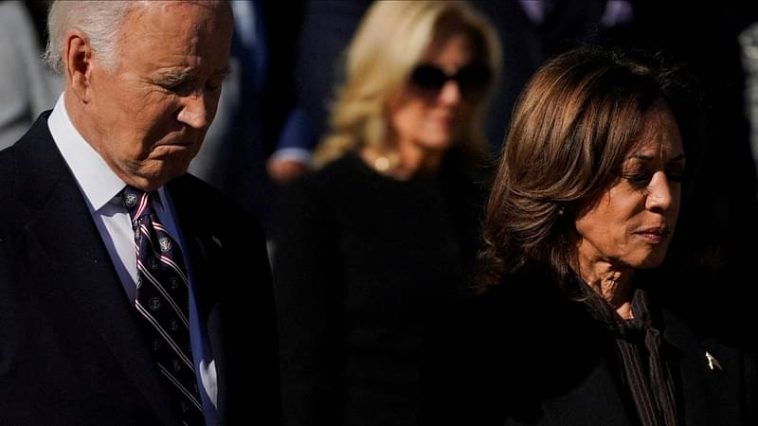In the aftermath of the election, Minnesota Governor Tim Walz expressed disbelief over the fact that middle-class citizens in America chose to support Donald Trump, an affluent figure, over himself and Vice President Kamala Harris, who he believes represent a more average-class demographic. Walz was Harris’ running mate, and he voiced his opinions on the missteps of the Democratic presidential campaign. His assessment was that the Harris campaign had failed to resonate with middle-class voters, which pushed them toward a candidate who embodies wealth such as Trump.
Walz found it astonishing when the Wall Street Journal highlighted that he was possibly the least prosperous individual that had ever sought the vice-presidential office. He found himself questioning how his campaign, representing everyday professions like a country attorney and a high school teacher, fell short against a billionaire or a venture capitalist. This outcome was a complete paradox to him because he believed his modest economic status should have won favor with voters.
Walz’s incredulity was further heightened because he felt that he was relatable and understood the experiences of average Americans. Having managed his own bills and expenses, he was certain that this trait should have resonated with voters who also face such challenges. Unfortunately, this did not translate into the expected voter support.
Walz, prior to the election, noted his lifelong focus on addressing middle-class issues. He held the notion that the Democratic party was a fertile ground for innovative ideas to support the middle class. However, in an unexpected twist, the majority of Americans cast their votes in favor of Trump, a billionaire known for lack of empathy towards his workers, including reports of refusal to pay overtime.
The irony did not stop at Trump’s wealth. His track record includes not just bypassing overtime pay, but also an unfavorable history of defaulting on payments to his laborers. Yet, despite substantial evidence of this behavior, the voters elected a man who has also been vocal about his intent to dismantle the Affordable Care Act (ACA).
Wrapping up his analysis of the Democrats’ failed campaign, Walz concluded that the loss could largely be attributed to the party’s inability to aptly communicate their appeal to the middle-class constituency. Walz criticized the communication strategy of his own party and ticket, stating, ‘We, as the Democratic party and as a ticket, failed to effectively demonstrate that we comprehend the challenges that average Americans encounter.’
Expressing his determination to make meaningful change, Walz pledged to uncover a method to effectively convey that the Democratic party’s focus aligns with what matters to the American citizens. The objective is plain and simple: ensure that the public recognizes that the Democrats care about their concerns and predicaments.
Walz’s astonishment over the electoral loss stretched beyond miscalculated campaign strategies. In a separate interview, he confessed his surprise over the rejection at the ballot box in the 2024 election.
Based on the energy and enthusiasm witnessed at political rallies, Walz had felt certain that victory was within reach for the Democrats. However, the reality of the results brought a stark contrast to his expectations, evidently demonstrating that the momentum didn’t translate to actual votes. This turn of events caught him off guard.
In retrospect, Walz acknowledged that despite their positive message, the Democrats didn’t manage to convince the majority of the country. It seems that they failed into inspiring confidence that they were indeed ready to deliver on these promised reforms.
As it stands, the Democratic Party, represented by the likes of Kamala Harris and Walz, appears to have become detached from the middle-class voter base that they intended to engage and appeal to. Their strategy of contrasting their modest backgrounds with Trump’s ostentatious billionaire status did little to sway voters’ decisions.
There seems to be a stark disconnect wherein a wealthy candidate, known for financial transgressions, was elected by an audience that his opposition, in theory, should have had a better chance at connecting with. This paradox marks a considerable failing in Democratic campaign strategy.
Ironically, the very characteristics that Walz thought to be appealing – his modest background and apparent understanding of the middle-class struggles – did not charm the voters. It suggests that campaign strategies need to be more nuanced and needs-oriented, rather than solely relying on contrasting candidate profiles.
With the results of this election, the grave need for a change in Democratic Party’s strategy becomes glaringly apparent. The party will need to reassess its messaging and methodology to ensure it truly engages its target demographic.
Walz’s retrospective musings suggest an openness towards learning from these perceived failures. He acknowledges the need for a paradigm shift in the party’s communication strategy, to better connect with its constituents and remain relevant.
While the outcomes of the 2024 election were unexpected, they present an opportunity for the Democratic Party to reevaluate, regroup, and revamp their approach. Only time will tell if they can leverage this experience and successfully bridge the gap with their perceived voter base.


